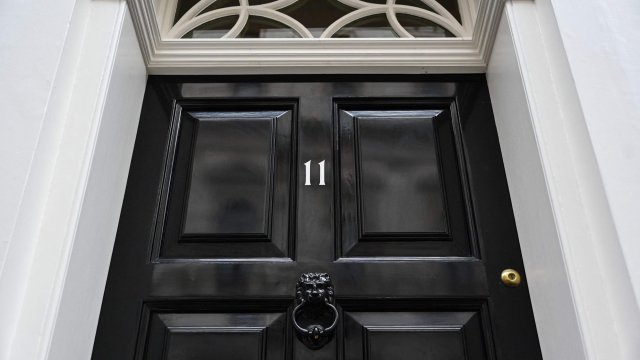
Jeremy Hunt will deliver the 2023 Budget on Wednesday, setting out the Government’s financial priorities for the year ahead.
The Chancellor is set to announce changes to universal credit childcare payments, as part of his drive to encourage more people back into the workforce.
He will also increase the amount parents on the benefit can claim on childcare, which has been frozen since 2006 despite inflation soaring. Here is everything you need to know.
What childcare changes will be announced in the Budget?
Mr Hunt will announce that parents on universal credit who claim childcare support will now receive it upfront.
Currently claimants must pay their own childcare costs and then claim a refund. Charities have warned this system risks pushing people into debt.
The amount parents on universal credit can claim on childcare will increase from £646 for a single child to £950 – and from £1,108 for two children to £1,630 – according to The Times. This represents an increase of almost 50 per cent.
A study from Coram Family and Childcare found the average price of a childcare place for 25 hours a week is now £150.89 per week in England, with the high costs “freezing parents out of work”.
A separate survey from the National Day Nurseries Association recently published shows that 98.4 per cent of nurseries in England say their funding rates do not cover delivery costs.
What childcare support is currently available?
In England, parents can get currently claim 570 hours of free childcare a year, equating to up to 15 hours a week. It is eligible for three to four-year-olds.
Some parents can apply for an additional 15 hours’ worth of childcare a week, bringing the total up to 30 hours. Eligibility depends factors including if you a person is working, their income and circumstances, and their immigration status.
For example, to qualify each parent needs to expect to earn at least £1,976 over the next three-month entitlement period if they are aged 23 or over, unless on maternity leave or sick leave.
Working families who qualify for universal credit can currently claim back up to 85 per cent of their monthly childcare costs, but this amount is now set to increase.
What time is the Budget on Wednesday?
The spring Budget is taking place on Wednesday 15 March. The Budget speech will be read out to MPs in the Houses of Parliament after Prime Minister’s Questions, which means it should start at about 12.30pm.
It will be shown live on major news channels including BBC News and Sky News, and details will be published on the Treasury’s website.
What else could Jeremy Hunt announce?
The Chancellor is not expected to announce tax cuts, despite a contingent of Tory MPs pushing hard for them.
The International Monetary Fund (IMF) has said the UK’s economy is likely to perform worst of any G7 nation in 2023, thanks in part to recent fiscal and monetary tightening.
But Treasury insiders insist the warning will not change Mr Hunt’s economic strategy, which involves raising taxes and limiting spending to reduce borrowing costs and bring inflation under control, before a limited giveaway in the spring Budget in 2024.
Chris Etherington, tax partner at the accountancy firm RSM, said: “Tax cuts may yet be announced in the spring Budget, but it seems likely these will be long-term promises that are unlikely to provide any immediate relief for taxpayers.”
Mr Hunt could also reverse a previous promise from Mr Sunak that the basic rate of income tax will fall to 19 per cent in 2024, with HMRC saying this would cost £6.85bn for the 2024-25 financial year.
“The political and economic landscape has clearly shifted since the war of words with Liz Truss on tax cuts in the leadership contest. Based on the figures published by HMRC, it seems even more likely the Chancellor will say this is a measure the country cannot currently afford,” Mr Etherington said.
The Government is expected to extend support for energy bills until the end of June to help households continuing to struggle with the cost of living crisis.
i understands that energy firms have been asked to prepare for the energy price guarantee (EPG), which currently caps bills for the average household at £2,500 a year, to remain at that level for three months after it expires on 1 April, rather than increase to £3,000 as previously planned.
A planned 12p rise in fuel duty – a tax charged on any petrol, diesel and other fuels used in vehicles or for heating – is likely to be suspended and the current relief of 5p per litre is also expected to be extended for another year.
Mr Hunt could announce an increase to the state pension age, though i understands this is unlikely despite much speculation. Currently, the age at which people start receiving their state pension is 66, and is set to rise to 68 between 2044 and 2046. There is speculation this could be brought forward to the mid-2030s.
The lifetime pension allowance is expected to rise from £1,073,100 to £1.8m – the level it was at in 2010.
The Chancellor is also set to increase the £40,000 cap on tax-free annual pension contributions to £60,000 – ending a nine-year freeze.
There is “really significant” pressure on the Chancellor to raise public sector salaries, said Cara Pacitti, senior economist at the Resolution Foundation, as nurses, teachers, civil servants, rail workers and others continue to strike over pay rises that do not match the rate of inflation.
The Government has said it can only afford a 3.5 per cent rise in public sector salaries. Negotiations are likely to continue beyond the Budget.







